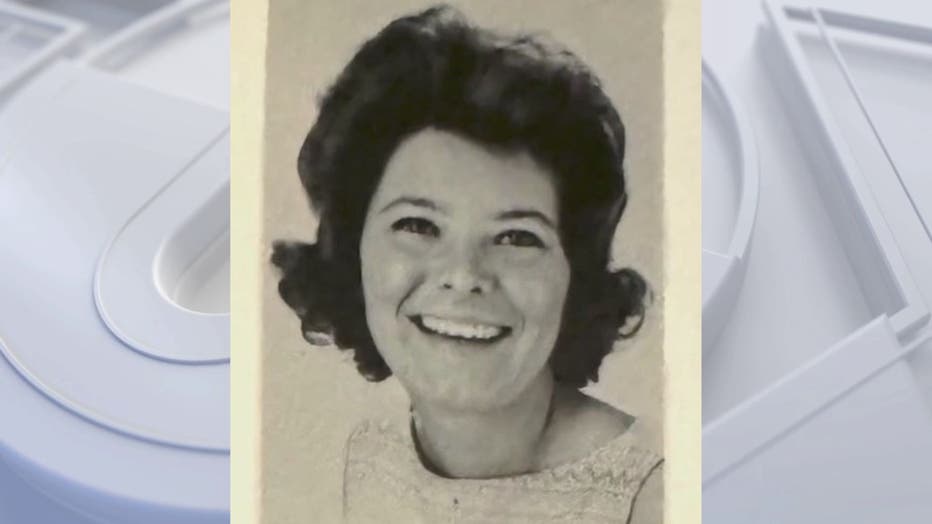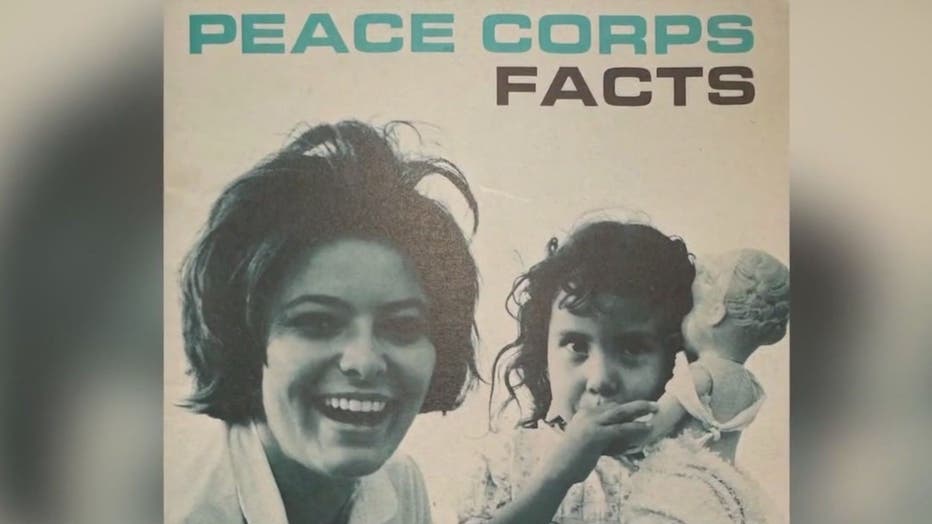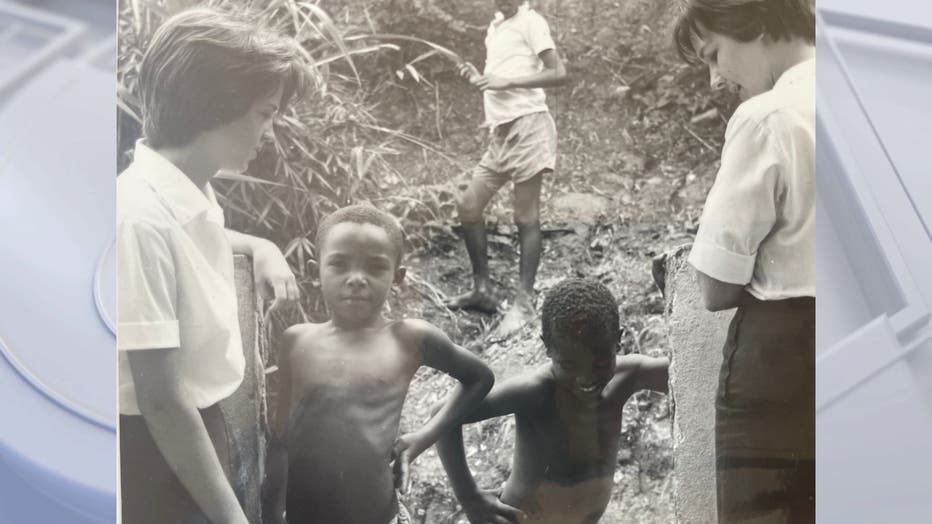Christine Devine shares her mother's stories through eyes of those who knew her
Christine Devine revisits her late mom's legacy
Christine Devine looks back on her mother's legacy -- with the help of the late Karen Lee Devine's Peace Corps friends.
In a season of honoring mothers and fathers (Mother's Day/Father's Day) I will take you on a personal journey that hopefully will serve as inspiration for you to know your family story.
I lost my mother in 2018. Through those who knew my mother, her story came to life. I took time to get answers and hear stories from decades ago. I turned to Mary and Gilbert D'urso, of La Crescenta, for a trip back in time – before I was born.
My mother was in the Peace Corps alongside Mary. In 1963, the Peace Corps took 20 young women to Brazil. It was an all-girls group sent to Rio de Janeiro.
They were called BRA 4, as Mary recalls, they were the fourth all-female team in the Peace Corps.
"We were early on" says Mary as she flips through old black and white photos. "I was assigned to a children's hospital."
My mother was assigned to a favela. Overall, the job was social work and health care and a representation of America.

Mary would marry a Brazilian, Gilberto.
"I used to be a climber, had a little climbing club" he says.
A Brazilian contact told him there were "20 women I need entertained. Could you guys take them hiking and climbing?"
The D'urso's settled in hilly La Crescenta decades ago, north of downtown Los Angeles. I'd met them over the years through my mother. This time, I was at their door seeking memories of my mom.
My mom, Karen Lee Devine, was Karen Lee Seufert when she joined the Peace Corps at 24. She was from upstate New York.
"We had this gorgeous view of Rio because we were up in the hills," Mary recalled.
The hills are home to Brazil's famed favelas, still to this day home to Rio's poorest communities.
Mom, in writing, spoke of showing movies in the favela. Mary described how they would first show health and hygiene movies, and then a cowboy movie.
Gilberto says of the Americans and movie night: "They became known by the whole favela."
From time to time, the 20 ladies who survived their training in New Mexico and made it on to Brazil would reunite in Albuquerque. Former Peace Corps volunteer Sally Foster, of Maryland, put together the latest reunion booklet with photos and updates on their lives.
"I've always been a photographer," Foster said.
She took beautiful black and white photos of her fellow volunteers capturing their work in Rio. A photo of my mom went global in print publications and was on the cover of Peace Corps pamphlets and brochures. I have it framed and on my living room wall.

I took to zoom with Foster and two other former volunteers. I asked Susan Davis Johnston, of Georgia, what joining the Peace Corps meant for women in the 1960s.
"I wanted to prove I could do something without my family's support, and do something different."
Nancy (Wolfe) Koon, of Michigan, noted, "My Portuguese was not very good."
Still, she felt that calling from President John F. Kennedy to serve her country.
That cry from President Kennedy was, "Ask not what your country can do for you but what you can do for your country."
Sadly, while BRA 4 was in Brazil, they'd learned of Kennedy's assassination in Dallas.
"Everybody gave Mary their condolences, as if she was a relative," Gilberto recalled.
"It was President Kennedy's brother-in-law who organized the Peace Corps, Sargent Shriver," notes Mary.
This history made me a huge fan of his daughter, journalist and former California First Lady, Maria Shriver.
I’d read in mom’s notes of the nonviolent military coup they experienced. I’d almost taste the feijoada (meat and beans stew) and rice she’d write about. I’d note the chapters that went unwritten. Any stories of meeting my father in Rio or of me were never put onto paper.
Gilberto seemed to be the only one in the group who’d met my father, and he’d shine a little light on that.
I hold tightly to mom's booklet from the last BRA 4 reunion in 2016. It was there in New Mexico that my mom felt ill, left early, returned to Sierra Vista, Arizona and only to be diagnosed with stage four ovarian cancer. She would pass away two years later.
It's through those who knew her that I learn more about my mother and how their two-year time in the Peace Corps mattered. Mary flips through photos of her with children. One child she notes was full of parasites.
"This young boy, he just had surgery. You can see his stitches, and he was so cute," Mary described one of the photos.

I soak in the smiling pictures of my mom in her 20s. There’s one where she plays the guitar as two children happily smile back.
"The young kids, they just adored us, they were wonderful," Mary said.
The next chapters, I will have to write myself. The chapter of finding my father this year in Brazil. Before she passed my mother gave me the key to finding him. It was only this year that the door was unlocked, with new stories to come.

